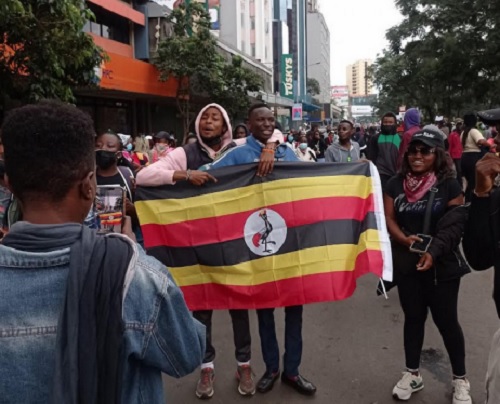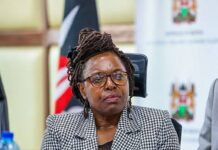Written By Lisa Murimi
On June 25, shortly before 3 pm, unexpected chaos erupted in Westlands, an affluent suburb of Nairobi, as protests against an unpopular Finance Bill spread from Nairobi’s central business district. Motorists made abrupt U-turns, warning others about the turmoil ahead. The Gen Z-led protests, featuring youths born after 1997, had paralyzed major Kenyan cities, including Nakuru, Eldoret, Mombasa, and Kisumu, for a week.
The chaos is a result of a growing dissatisfaction with the rising cost of living, corruption, and repressive governance in Africa, similar to the reasons behind recent coups in Central and West Africa.
The protests’ impact was felt beyond Kenya’s borders. In Uganda, citizens reported slow internet connections on the day of the protests, speculating government interference to prevent a domino effect. The freewheeling Kenyan youth populated social media with hashtags like #OccupyParliament, #RejectFinanceBill2024, and #RutoMustGo, inspiring Ugandan activists to organize a march to their parliament on July 23 to highlight rampant corruption and impunity.
However, as videos of Kenyans being abducted by commandos in black vans surfaced, it became apparent that the Kenyan state was adopting tactics from Uganda’s playbook. The familiar dawn raids and abductions of influential online figures stirred fear and reminded Ugandans of their political climate.
The protests in Kenya sparked a debate in Uganda, a country under President Yoweri Museveni’s 38-year rule, marked by political stagnation and a lack of a clear succession plan. Kenyan journalists likened Uganda’s current state to Kenya’s situation two decades ago under Daniel Arap Moi’s extended rule.
The fear of the protests spreading prompted President Museveni to hold an impromptu meeting with newly appointed Inspector General of Police Abbas Byakagaba. Despite occasional disagreements, Museveni, an ally and mentor to Kenyan President Ruto, seemingly influenced Ruto’s response to the protests, where he condemned the demonstrations as hijacked by “criminals.”
The unrest also affected Uganda House in Nairobi, home to Uganda’s mission in Kenya, which caught fire amid the chaos, further entwining the two countries’ political turmoil. The cause of the fire remains unclear, but it underscored the proximity of their political issues.
As Kenyan youths rampaged through Nairobi, Ugandans took to social media with the hashtag #TextTheThief, condemning their MPs for endemic corruption, particularly Speaker Anita Among. The scandal involved illicit wire transfers and lavish spending, fueling public outrage and police investigations. Speaker Among and several MPs are now facing graft-related charges, with a citizen-led effort under #UgandaParliamentExhibition holding them accountable.
As Uganda prepares for the July 23 march, the parallels with Kenya’s recent protests highlight a shared regional struggle against corruption and repressive governance. The question remains: how will Museveni respond if Ugandan activists, inspired by Kenya, march on parliament? The region watches with bated breath as the call for justice and reform grows louder.



















